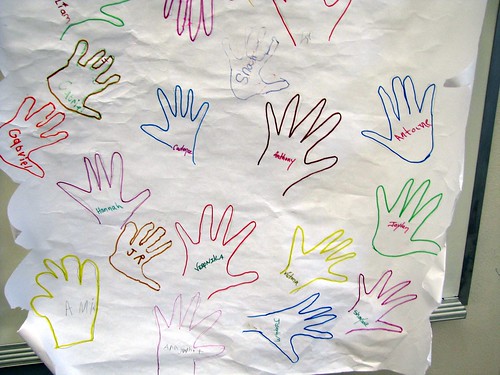+
More from the presentation on "Understanding and Addressing Challenging Behaviors" by Colleen Nolan, MA, of the NW Regional ESD, Oregon, at the 2012 Infant and Early Childhood Conference in Tacoma. -gw
+
+
The experience of providing INFANT and EARLY CHILDHOOD MENTAL HEALTH consultation, from the perspective of providers on the Kitsap and Olympic peninsulas of Washington State
AbstractThe aim of this study was to investigate the effectiveness of the Japanese Infant Mental Health Program (JIMHP) for preterm mother–infant dyads until the infants reached 12 months of corrected age. Mothers in the JIMHP group (n = 26) received one hospital visit in addition to standard care in the Growing Care Unit (GCU) and five home visits based on the principles of infant mental health (IMH) after discharge from the hospital, until the infant reached 12 months of corrected age. In contrast, mothers in the control program group (n = 40) received standard care in the GCU and three conventional home visits during the same period. The dyads were then compared across groups, revealing that the JIMHP dyads showed less maternal depressive symptoms, better maternal interaction, increased social support by medical workers and healthcare professionals, a high persistence rate for attending the program, and a more positive perception toward the program (p < .05). However, there were no significant differences in the impact of parenting stress or in child development. These results are discussed in terms of their significance and the practical/clinical availability of IMH principles and the JIMHP as a new support model for preterm infants in Japan.

How does one follow the lead of the child? By respecting that young children need to explore, discover, and construct their own learning and understanding, and by allowing them opportunities to do so.
Adults need to remember that they should not over-stimulate their children. Observation is key. The clearest example of over stimulation is tickling. Kids love to get tickled. But then they reach a point where they become over stimulated and it's no longer fun for them. You have to watch for physical signs and cues that kids have reached their breaking point. Babies will turn their gaze and their bodies away, older kids will say "no," "stop" or "no more." Crying, tantrums, any behavior - even laughing - where the child's emotion is escalated indicates over stimulation. It's just another reason observation skills are so important.
... it’s certainly common for adults or older kids to tease young children unmercifully, to justify their actions by saying they’re “just teasing”, and to become angry and even punish the child who displays distress when teased intensely. School-age children exposed to this treatment usually learn how to evade the adult’s attention, but younger ones naturally respond to distress by approaching the people who ought to be protecting them-- the very ones who are tormenting them. We’ve all seen this at the beach, as screaming toddlers and preschoolers are carried to be thrown into the water, or in other situations where an adult picks up a child and won’t put her down, or threatens to throw away a toy or harm a pet. These situations often conclude with some type of punishment of the child, who is then characterized as a “wimp” or a “sissy”.